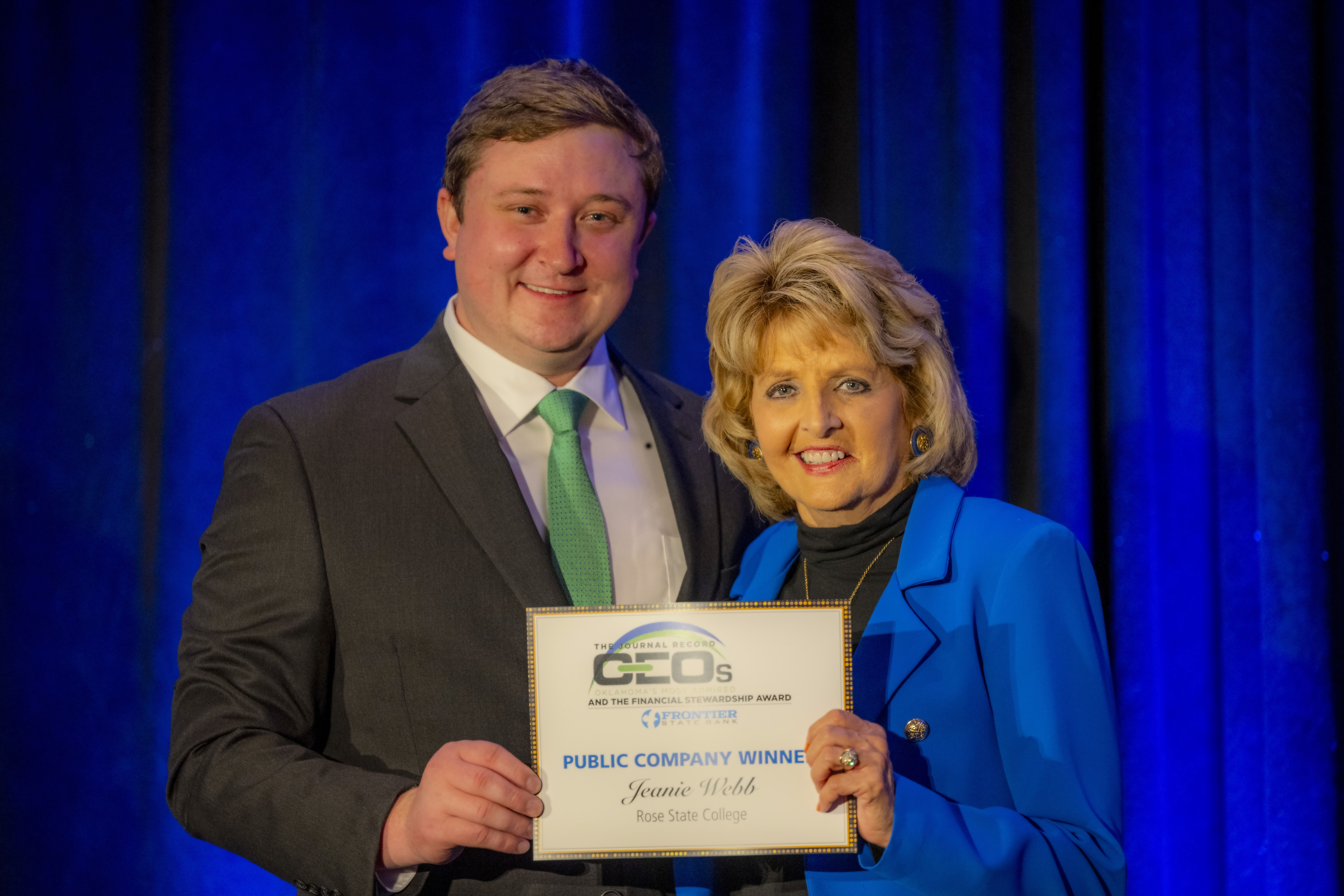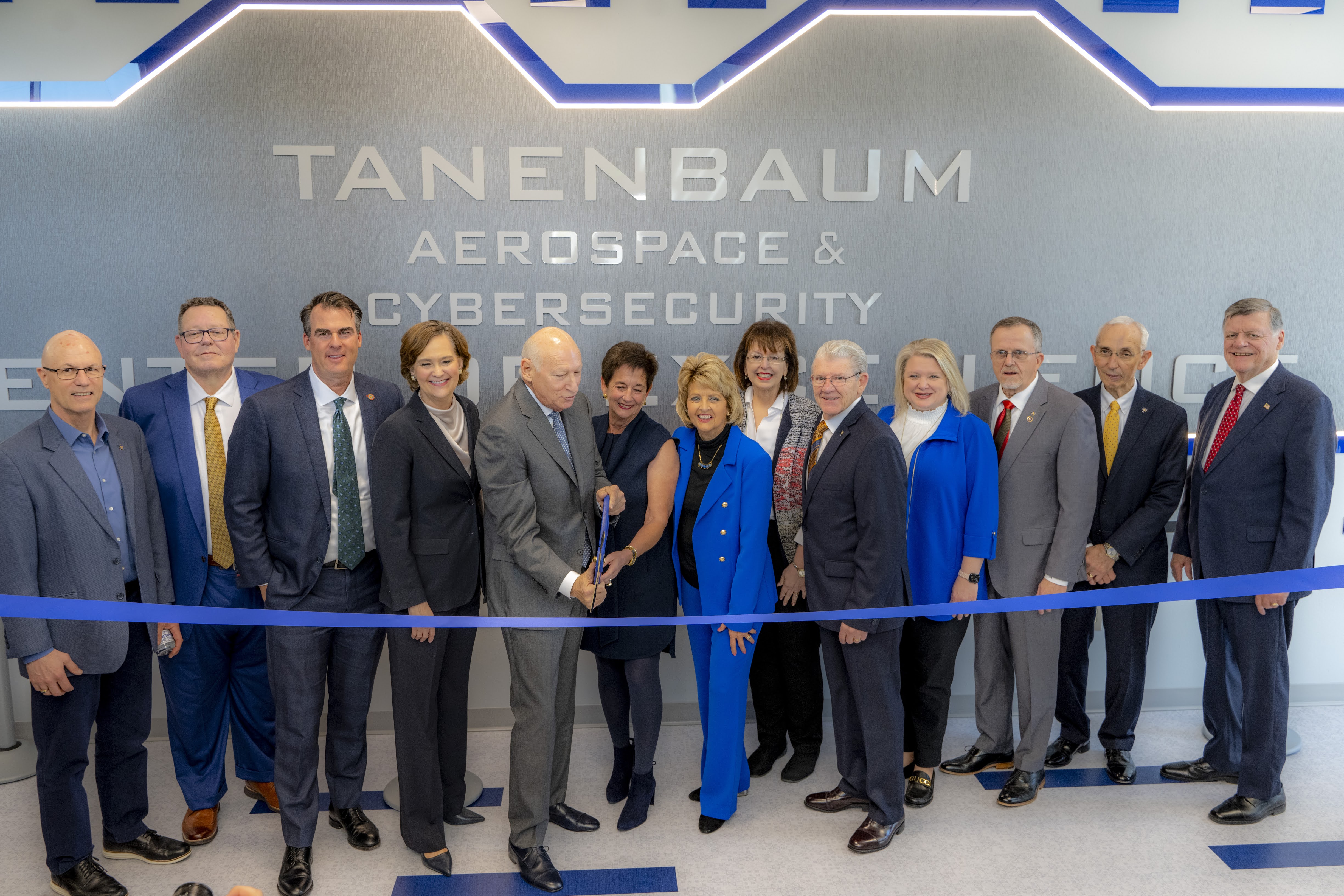Clark, Mary
Mary Clark
Born: 1917
Date Interviewed: April 4, 2003
Interviewer: Kim Wyatt
Topic: World War II work experience
Q: When and where were you born?
A: North of Duncan, Oklahoma, at Gatlin. April 9, 1917.
Q: Where did you attend school and for how long?
A: Empire Consolidated School Number 21, all twelve years.
Q: What were your interests and hobbies as a young woman?
A: I learned to play the piano and I liked to read an awful lot.
Q: When did you begin to get a sense that the US was headed toward war?
A: About when my husband volunteered to enlist January 24, 1943.
Q: What was your reaction?
A: He had been to Kelly Field in San Antonio and had worked there and was training and he volunteered to go to England. My reaction? I knew that something had to be done in the world to take care of Hitler.
Q: What was the atmosphere like and the mood of people in the town in which you lived?
A: They wanted for the war to be successful for the United States. They wanted us to win.
Q: Were you married at the time?
A: Yes, I was. And I had a son who was a year old when he father went into the service. He was born in 1941, so that makes him 62 this April, ready to retire.
Q: Did the two of you discuss how the war might affect your relationship?
A: No, it didn’t affect my relationship because I knew that he knew what he was doing because he was an aircraft mechanic in England. That’s what he specialized in. He never did have to go across into the European continent. His mother lived with me and she helped take care of our little son. It worked out real well.
Q: When did you decide to become a “Rosie the Riveter?”
A: I worked at Douglas Aircraft Company in Midwest City for the whole duration of the war. I trained to be a riveter and I found a warped bulkhead that I was working on and because I understood that it was warped and couldn’t be used successfully, they made me an inspector.
Q: How did the people close to you react to your decision?
A: As far as I know, everyone was pleased because they were going to work, too, and it turned out real well.
Q: Did you know a lot of other women in your area that were also going to become involved?
A: No, I didn’t because I moved from Duncan to Oklahoma City to work at Douglas. They were all strangers until I met them [at work].
Q: How did the process unfold as you went from civilian to defense industry worker?
A: Knowing that I had my mother-in-law to take care of my son was an advantage to me. It worked out real well. I had no problems. I rode the bus to Douglas Aircraft everyday and back. I was on swing shift.
Q: What kind of job or jobs did you work? What were you responsible for?
A: I was an inspector on the tail section of the C-47. I had to mark all the critical parts that weren’t right.
Q: How many hours per day did you work and how many days per week did you work?
A: I worked eight hours a day and if I had overtime, I worked six or seven days. Usually it was five.
Q: What kind of pay did you receive?
A: I really don’t know. It was more than the riveters, I know that. I know that I saved several thousand dollars to buy a home whenever my husband came back.
Q: How long did your employment last?
A: Three and a half years.
Q: What was the mood of your fellow female workers?
A: We all enjoyed visiting whenever we had a break and most of them were pleased with the way I marked the ship.
Q: Was there a sense of camaraderie among the female workers? Did you make any lifelong friends?
A: Definitely. I made friends that lasted for several years, yes. Then they moved away, got married, and time took it’s toll.
Q: Did the women enjoy the work, or did the work prove difficult for some of the women?
A: Most of them were very faithful to the job, and I heard very little complaining. I think most of the women were trained before they came into the area and that eliminated them if they didn’t want to do the work.
Q: Were the women from every kind of economic, racial, and social background?
A: Yes, they really were. Most of them were Caucasian. At that time the blacks weren’t hired to work on the assembly line. They probably did other things. But at that time in life, the blacks weren’t even recognized. They were from different levels financially.
Q: Could you please elaborate whether or not all women were treated equal or if some women, because of their background, had a more difficult time than others.
A: As I recall, everyone was treated equally. Once in a while one or two of them would have some illness and they would take off, but it was pretty continuous.
Q: What was the reaction of the fellow male workers?
A: My supervisor was from Wellston. He drove all the way from Wellston to Oklahoma City every day. I had no problem personally with the attitude of any of them. We were all there for a purpose to do our job and get our loved ones back home.
Q: How were you treated by them, as well as by the bosses who were in charge?
A: The bosses treated us very well. Very well.
Q: What was the overall atmosphere at Tinker Air Force Base and the surrounding area?
A: We were all busy, everyone was active, trying to get things done.
Q: What kinds of memorable occurrences did you witness or experience?
A: I had two or three girlfriends. I think two of them were not married when we first me, and we had no time to play cards or anything like that, but if we had a break most of them got something to eat or drink. We all liked each other.
Q: After the war, was there any kind of pressure from the government and the media for women to leave the workplace and return to homes so that male veterans could once again have access to jobs?
A: There really was. After my husband came home, I worked for Macklinburg-Duncan in Oklahoma City.
Q: When the war was over, did you quit working?
A: No, I didn’t. My husband’s mother was still living with us. She lived with us for nine years, so it was good for me to be away during the day and let her have the house and take care of our son, and come back in and spend time with my son. I just had the one boy and my husband.
Q: How do you think the war years impacted the lives of women in this country?
A: I think a lot of them were happy when the war was over so they could back to being a wife or go back home. Those that lost loved ones were grieved and sad, but most of us dispersed and went our own way.
Q: What impact did the working women of World War II and their experiences have on future generations of American women?
A: I think that impacted the most was the soldiers who returned. They would not talk about the war. I think it was grievous to them and in a way it was the best thing because it was all over.
Q: Did the skills you learned during the war serve you in any kind of way in the subsequent years after the war?
A: It taught me how to get along with people, and it taught me to be courteous and kind. Really, it affected many of the ladies’ personalities, you could tell.
Q: What things stand out most in regard to your experience as a Rosie the Riveter or any of the other kinds of work you did during World War II?
A: It was having experience and working in public.
Q: What kind of lessons did you learn?
A: To be honest. To treat everyone with respect.
Q: If you would like to discuss or expand on anything at this time, please feel free to do so. Would you like to add anything?
A: I might say that my husband was one of the first 400 men that worked at Tinker Field because he had trained at Kelly Field in San Antonio. He was supposed to get his job back when he came home, and none of them got the same job that they had left. That was kind of a blow to the veterans. He being one of the first 400, he helped establish Tinker Field.



